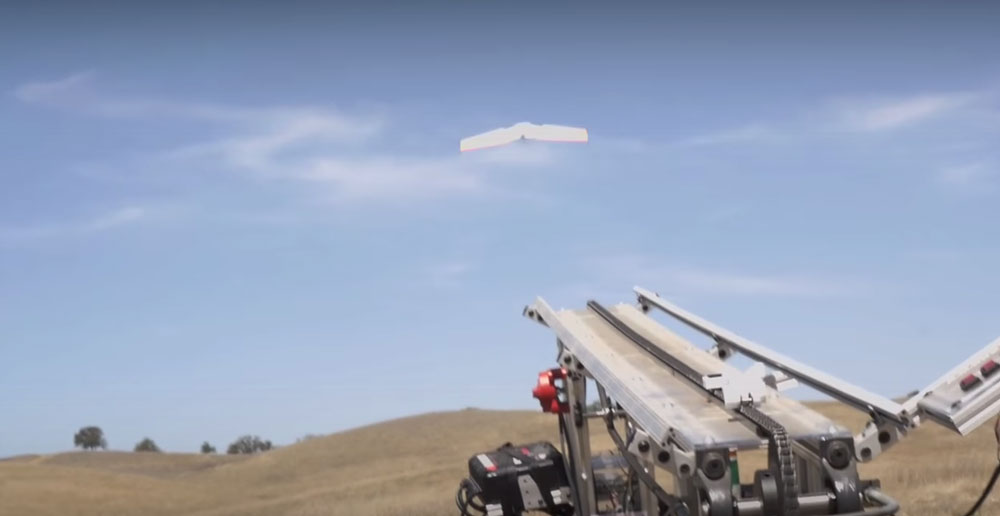
Robohub.org
Fifty planes in the air running ROS & Gazebo
 The Advanced Robotic Systems Engineering Lab at the Naval Postgraduate School in Monterey, CA recently flew fifty small autonomous planes together using ROS.
The Advanced Robotic Systems Engineering Lab at the Naval Postgraduate School in Monterey, CA recently flew fifty small autonomous planes together using ROS.
Each plane – a styrofoam wing with a 56” wingspan – was equipped with a Pixhawk autopilot running a modified version of the open-source Ardupilot firmware and an ODroid u3 “payload” computer running ROS Indigo. The payload used autopilot_bridge (similar to mavros) to bridge between serial communications with the autopilot and ROS messages and services. A network node bridged ROS communications with a lightweight UDP-based protocol that allowed aircraft to share their pose and status with one another and to receive commands from the ground.
Also residing on the payload was a set of controller nodes that could “drive” the plane by sending updated target latitude-longitude-altitude commands to the autopilot. Controllers were individually activated by a state machine, based on commands from the ground. The controller used during the fifty-plane flight was a follower controller. A single ground operator commanded two sets of 25 planes each to configure themselves into leader-follower formations; planes would determine a leader based on highest altitude (which was deconflicted at the start of the flight). The leader would then proceed along a predefined racetrack, and all followers, listening to the broadcast position of the leader, would track its path while remaining at their designated altitudes.
https://youtu.be/-zKDdAw609Y
A detailed writeup of the flight test is posted at DIY Drones and more information on the research project can be found at the ARSENL website.
tags: c-Aerial, cx-Research-Innovation, Gazebo, ROS





